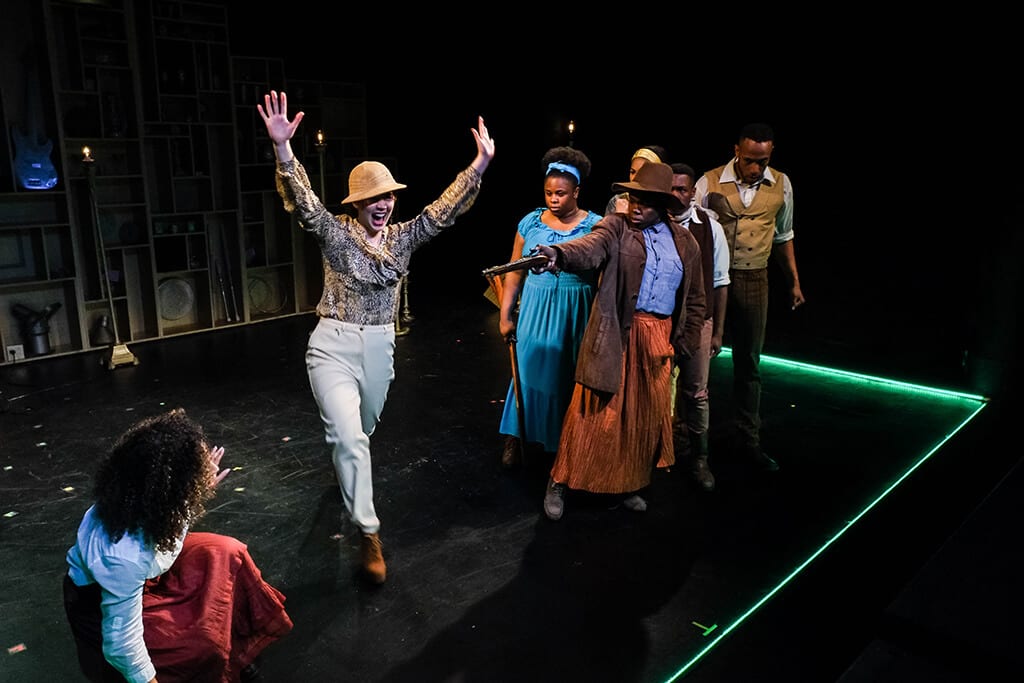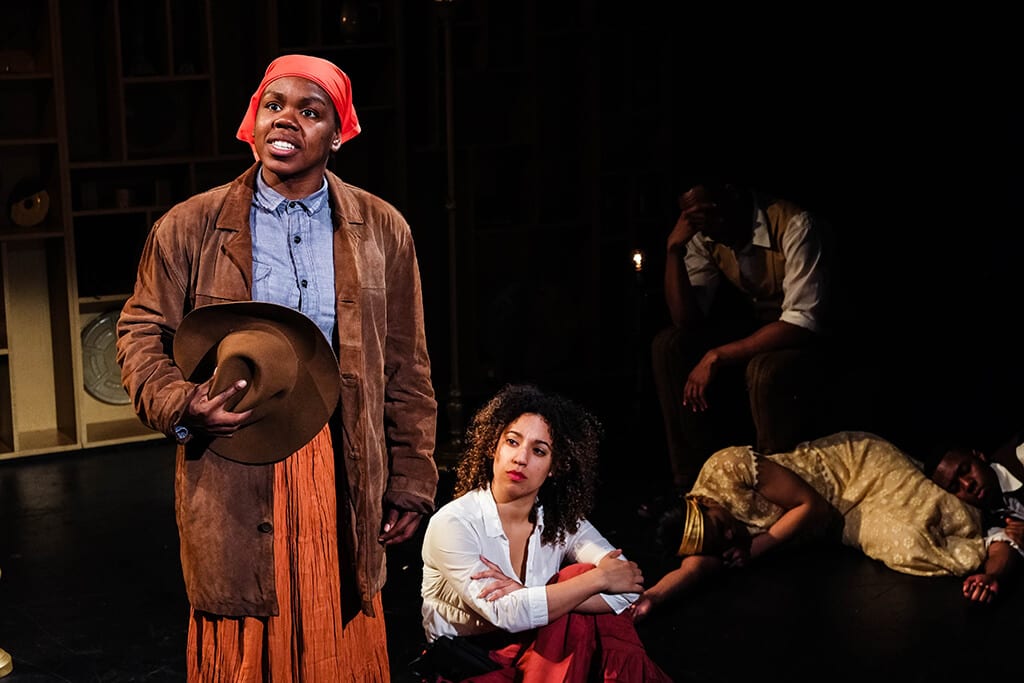This is in many respects a very winning show, an underground sci-fi comic book brought amusingly to life, complete with a swaggery anti-hero on one last job (Shelley Fort), a mad scientist (in this case Jeremy Owens as a gay black genius with a Cheshire Cat smile, a time machine, and dreams of empire) and an exciting mission filled with danger: Go back in time, find Harriet Tubman amidst the perils of the Underground Railroad, and change the course of history.
There are many real laughs and some earned emotional payoff amidst the mayhem. A lot of the humor comes from the enslaved characters’ anachronistic present day attitudes in the face of the absurd, accepted cruelties of slavery, a neat trick that also gets us to enter into their predicament in a new way. Tesiana Elie is an underplayed standout, who can deflate with barely a nose wrinkle. Her unselfaware, deluded white overseer and rapist is also well played by Brough Hansen, with a very smart turn played out of character. The inspiration and the most genuinely moving moments in the show are earned by the straight ahead, grounded performance of Ngozi Anyanwu as Harriet Tubman, the “Harry” of the title, brave general of the Underground Railroad. Keep your eye on this talented woman, an award-winning young playwright herself. She maintains her dignity and sense of purpose even when the play stretches in imaginative, non-realistic ways. After all the suffering, indignities, and peril the group has faced, when she tells them on arrival in the north to see the new dawn with “eyes of freedom”, we get the enormity of her gift in their lives.
The show needs–deserves–some work. The brisk blocking and pace is spot on but is ultimately wearing without enough additional dramatic or entertainment value to merit an hour and forty-five minutes without intermission. The show seems to end in a big musical number and then goes for another twenty minutes. One wishes to have that time machine. Some modulation is needed between characters that are shrilly, unrelentingly cartoonish, like the plantation-owner fop, and those played in a more grounded way. There is a very inventively polymorphous, slinky, madcap narrator figure that demands attention more than conveys meaning. With respect to the benefits of a little Brechtian alienation, it’s too much of a good thing here. And while the costuming is fun and right, the set is a missed opportunity, a blandly well crafted Pier One aisle that neither adds nor detracts and is not a match for the zest of the show.
But the biggest area worth working on is paying off the central premise in the book. The show is one giant implied promise that we will see some playful, thought-provoking way in which the course of history has been altered, likely with some unintended consequences. We get some of that in the narration, but we have one last great chance to experience the transporting magic of theater here.
A sequel is gamely hinted at, maybe only as a formal joke. But if these book and production issues are addressed, I would like to come back and take that ride.




